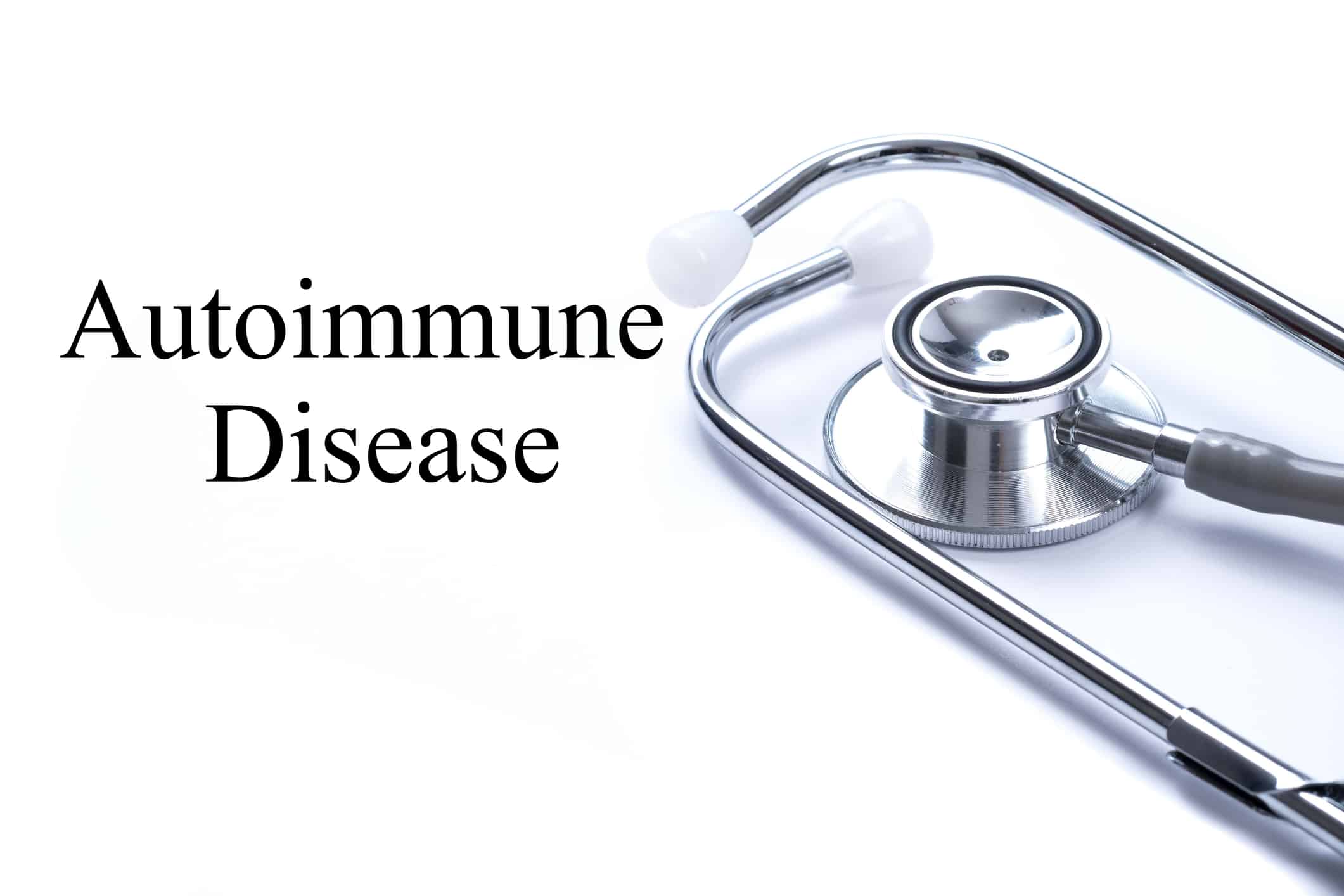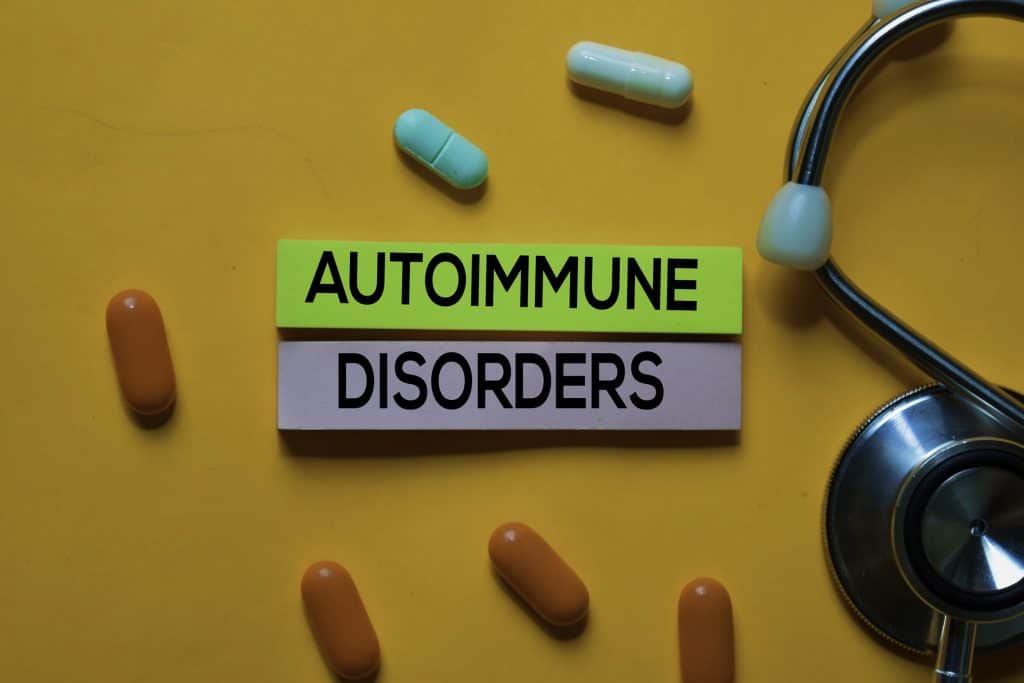Can Probiotics Cure Autoimmune Disease?

As an affiliate, we may earn a commission from qualifying purchases. We get commissions for purchases made through links on this website from Amazon and other third parties.
Is your gut in need of a little boost? Research has shown that probiotics can treat autoimmune diseases. So in this article, we look to explore whether probiotics cure autoimmune diseases and provide much-needed relief for those suffering.
One of the most exciting discoveries in recent years is that probiotics may be able to cure autoimmune diseases.
Autoimmune diseases are a group of more than 80 chronic illnesses, such as arthritis and Crohn’s Disease, where your immune system mistakenly attacks healthy cells instead of fighting off infections or bacteria.
Probiotic therapy has shown promise in reversing these conditions by improving gut health through increasing levels of good bacteria like Lactobacillus Acidophilus and Bifidobacteria and reducing harmful microbes called Candida Albicans; this leads to lower inflammatory responses throughout the body which can result in remission from other symptoms too (like skin rashes).
What if we told you that there’s a way to cure autoimmune disease without surgery or medication?
Can it really be true, is this the future of medicine? Are these claims too good to believe for some people plagued by chronic pain and fatigue due in part to their compromised immune system?
Well, fortunately, according to recent studies from McMaster University, probiotics may just hold the secret ingredient needed.
Probiotics are live bacteria (mostly beneficial) found naturally in your gut which can help restore healthy intestinal microbial balance when taken as an oral supplement.
The study conducted on rats showed those who were given probiotic supplementation had fewer symptoms than those not taking them at all.
Can probiotics help with autoimmune disorders?
One of the most common questions regarding probiotics and autoimmune diseases is can they help treat an autoimmune condition.
Probiotics are generally good for the digestive system, and the interaction they have with our intestinal flora is well-documented.
They are also used to combat a host of other health problems including IBD (itching, bloating), Candida, and even acne. So, is there a connection between probiotics and autoimmune disease?
Our modern-day western diet consists of many foods that are highly acidic and simple by nature. These conditions upset the sensitive nature of our intestinal tract, which causes it to respond in defense.
The most common response is to produce antibodies that are designed to attack foreign matters which are “guarded” by our immune system.
This results in inflammation, which includes everything from colds and flu to rashes and allergic reactions.
When the immune system is overly sensitive to the food we consume, it can cause it to produce antibodies against our own cells. This inflammation can then cause inflammation throughout the body.
This is how we get a runny nose, a clogged nose, redness in the joints, and fatigue. This same system is also responsible for allergic reactions, joint pain, and stomach upset.
When our immune system is overly sensitive, it is impossible for probiotics to be helpful.
Probiotics are found naturally in the digestive tract. They serve as a helpful helper for healthy digestion by promoting a regular release of digestive bacteria.
These bacteria are also needed for the production of lactase, the enzyme needed for the digestion of milk and cheese.
However, as the intake of dairy and other foods with bacteria increases, so does the intake of antibiotics. Antibiotics are often prescribed for the treatment of serious illnesses like MRSA, but research suggests that the prolonged use of antibiotics can cause a variety of long-term health problems including autoimmune disorders.
Many people do not realize that the lining of the small intestine also includes mucus-like cells, called villi, which trap foreign particles and other bacteria before they reach the colon.
The presence of too many harmful bacteria can cause toxins to be released back into the body through the colon. Chronic inflammation can then occur due to the overgrowth of these harmful bacteria.
Antibiotics kill off the helpful bacteria, leaving the intestines to be overtaken by the unhealthy bacteria. This can result in constipation, diarrhoea, and other gastrointestinal problems.

Can probiotics cure autoimmune diseases?
Research has shown that probiotics can help strengthen the immune system. This may explain why some patients with weak immune systems have recovered after they began taking probiotics.
Probiotics also have a similar healing effect on the digestive system. Studies have found that probiotics can help reduce the incidence and severity of irritable bowel syndrome and colon cancer.
These benefits make probiotics very valuable for people who are trying to take control of their health.
Probiotics can be taken in several different forms, including suppositories, tablets, liquids, and meals. They can also be purchased as health food stores sell nutritional supplements.
The best time to take probiotics is about an hour before or after a meal or snack. It is important to take them in the morning as this is when they are most effective. In addition, probiotics should be taken regularly if you want your immune system to stay strong.
What can probiotics do to help your body recover from disease? The best part is that they will help your body defend itself against illnesses that you would normally be susceptible to.
The research behind probiotics has shown that they can help prevent the development of antibiotic-resistant strains of staph infections and enable the body to produce antibodies to fight invading microorganisms.
Probiotics have also been shown to reduce the impact of certain environmental irritants on the immune system. This is one of the reasons that probiotics have been used to combat many types of diseases.
If you are wondering “can probiotics cure autoimmune disease?” the answer is a resounding “yes!
Final thoughts
It seems that the answer is a resounding no. The best treatment for autoimmune disease is to manage and control it with medication, not by taking probiotics which have shown little or no effect on any symptoms of autoimmunity as of now.
Probiotics are still worth looking into though – they may help people who suffer from other digestive issues like IBS, Crohn’s Disease, ulcerative colitis, etc., but only time will tell if we’ll find out more about their connection with autoimmune diseases in the future.
In conclusion, it is not proven that probiotics can cure autoimmune diseases. However, there are many benefits of taking a probiotic supplement and the best way to find out if they will help you is by speaking with your doctor.
A quick reminder ..
Probiotics.tips aim to provide the most up-to-date information, help, and advice for YOU to make informed decisions. If you are unsure or uncertain and require more clarity, please reach out to us and we will gladly come back and advise you as best we can.
The best means to reach us is via email at info@probiotics.tips or fill out the form on our Contact Us page – click here.
Probiotics.tips
About Us
Our goal is to empower you with concise probiotic guidance for a healthier gut. With expert advice, we provide the knowledge to improve your well-being and navigate the world of probiotics efficiently, ensuring you achieve optimal gut health.
- Can You Take Probiotics While Water Fasting?
- Does Fasting Help Microbiome Diversity and Functionality?
- Does Fasting Help Your Bowels
- Does Fasting Help Probiotics? Understanding Gut Health Benefits
- Does Fasting Help the Gut: Understanding the Impact on Digestive Health
Disclaimer
As an affiliate, we may earn a commission from qualifying purchases. We get commissions for purchases made through links on this website from Amazon and other third parties.
Check these out on Amazon








